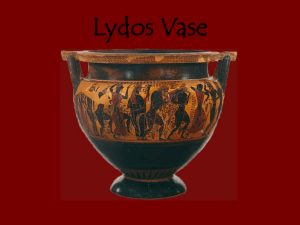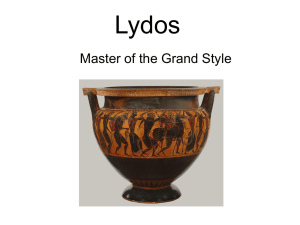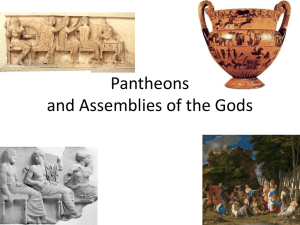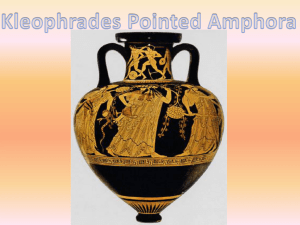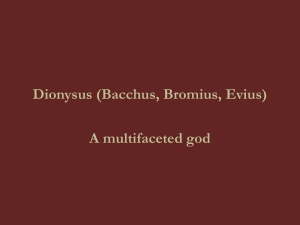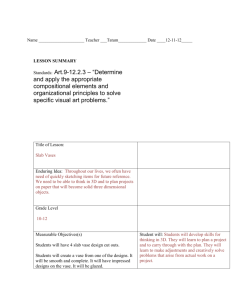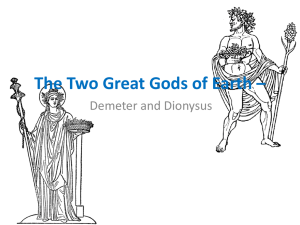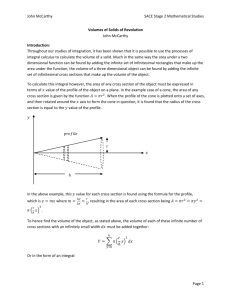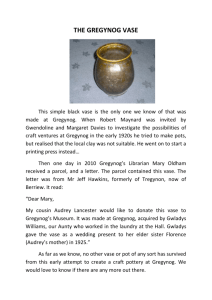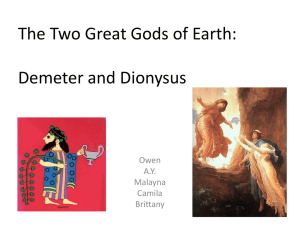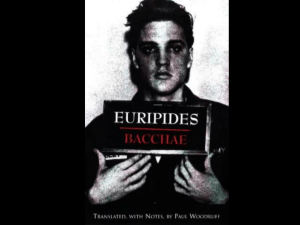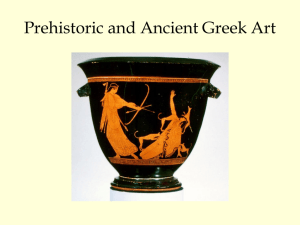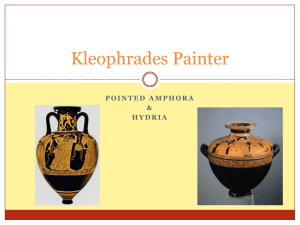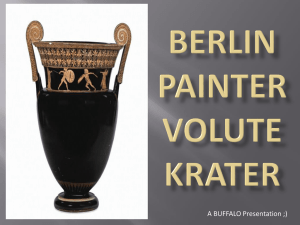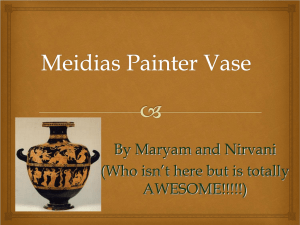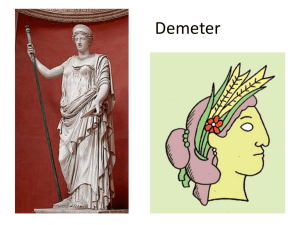The Lydos Column Krater
advertisement
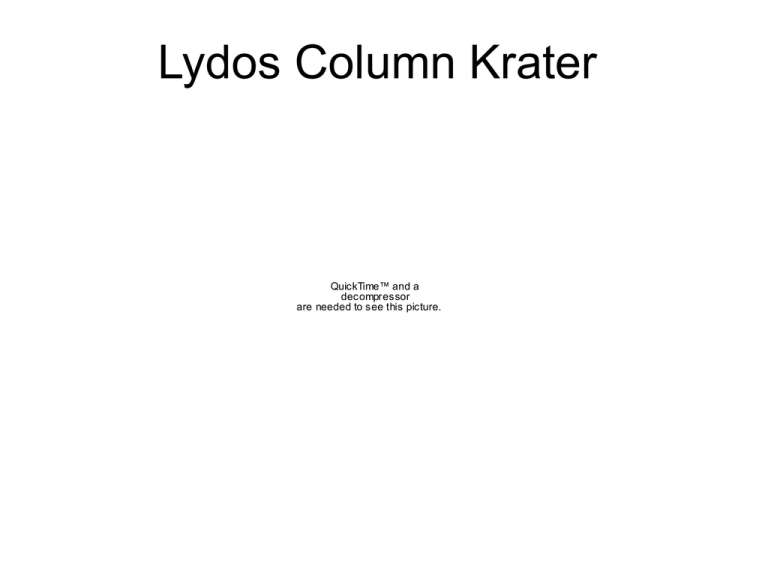
Lydos Column Krater QuickTime™ and a decompressor are needed to see this picture. Key Facts • • • • Made in 560-550BC 56.5cms tall Potter and painter is known as Lydos Column Krater used to mix wine and water at symposiums Lydos • Came from Lydia • Signed himself as a slave • Little is known about him but he is said to be the creator of several vases and the decorator of vases made by other artists Qui ckTime™ and a decompressor are needed to see this pictur e. The Column Krater • Used to mix wine and water then placed in the center of the room at a symposium and people would collect their drinks in other vessels. • A krater of this size would have been carried by two slaves. • It’s known as a column krater due to it’s column like handles that join at the lip and shoulder Myth and Characters • The vase depicts the story of Dionysus taking Hephaistos back to Mt Olympus Dionysus • Holding a wine horn • Is carrying a vine • Also carrying ivy • Suitable because it would have been used at a party and he is the god of parties. • Appears on the centre of side A surrounded by satyrs and maenads • Hephaistos can be seen on the donkey Painting technique • Black Figure • Red/purple clay slip has been used to colour the clothing of many characters and also the tongue design that can be seen on the shoulder of the vase • Incising was used to add in details by scratching some of the black away from the figures. Eg. faces of the satyrs, folds of Hephaistos’ cloak, the hair on the horse and the figures. • Again the white paint on the Maenads to show they are female, but it fades easily Satyrs and Maenads Satyrs • Tails • Half animal and half human • Generally naked and hairy • Behind Hephaistos on side B • He is overlapping other figures and he is facing outwards Maenads • Usually dancing, seen by the position of her arms and the pose of her legs and feet •Female followers of Dionysus QuickTime™ and a decompressor are needed to see this picture. Mood • General mood of a party, joyous and drunken occasion • The mood on the Hephaistos side of the vase is a little calmer and less joyous than the Dionysus side. • The artist has inserted little funny figures in the work eg, the satyr trying to steal the wine, Satyr pulling another’s tail • Also shows it’s a party through the dancing of all the figures and the large amount of grapes and vines seen all over the vase Composition • The scene is on the belly of the vase and goes all the way around in a single band. • In drawing a continuous frieze the artist would have had to draw around the handles, he painted smaller figures under the handle joins to deal with this problem. • Painter shows depth through overlapping and the use of the small bird flying over head of Dionysus • The artist also uses two borders to contain the images, the tongue detailing around the top and the red lines underneath • Grand Style refers to the more structured and formal placement of the figures and the use of only one myth around the entire vase Style • This vase is still one of the earliest as is shown by the placement of the eyes, they still hadn’t quite figured out the anatomy of a head. Francois Vase Comparison • The artist has more of an idea of the way the legs and arms work • The body is more in proportion with itself • The turning of the figure The maenad is wearing a basic peplos with a skin of some sort over the top, the artist shows the textures through a use of slip and incising Quic kT ime™ and a dec ompres sor are needed to s ee this pic ture. looks more realistic Drapery is now more defined and detailed with patterns on the bottom and the plane of cloth broken up with a coloured fold painted with slip.
